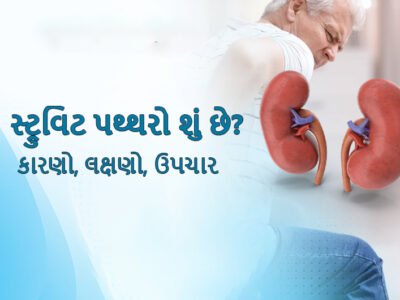Chronic Kidney Disease (CKD) represents a complex clinical entity with multifaceted dietary implications. In this comprehensive analysis, we embark on a scientific journey through the intricate landscape of Chronic Kidney Disease (CKD) nutrition. While we delve into the meticulous details, we aim to maintain an engaging discourse on the pivotal role that dietary choices play in safeguarding renal health and overall well-being.
Hydration during CKD: The Renal Balancing Act
The Physiology of Hydration
A profound understanding of hydration dynamics is indispensable for CKD patients. Contrary to intuition, maintaining adequate hydration is imperative, as dehydration could inadvertently burden renal function. The scientific elucidation of this paradox unfolds as follows:
- Thirst Mechanism: Thirst perception serves as a reliable gauge for fluid requirements. Embracing the sensation of thirst guides optimal fluid intake.
- Optimal Fluid Intake: Balancing hydration without overburdening the kidneys necessitates moderation in fluid consumption. Excessive fluid intake can exacerbate renal stress.
- The Soda Conundrum: Rigorous research links regular soda consumption to renal impairment. Consequently, CKD patients are advised to abstain from sugary soda consumption, preserving kidney function.
Potassium Intake: Electrolyte Equilibrium
Deconstructing Potassium Dynamics
Understanding potassium equilibrium is pivotal for CKD management, as diminished renal capacity can precipitate potassium retention. A scientific breakdown of potassium intake is as follows:
- Moderating High-Potassium Foods: High-potassium edibles, such as bananas and potatoes, necessitate vigilant consumption, aligning with healthcare provider recommendations.
- Cooking Alchemy: Employing specific cooking techniques, such as cubing and boiling, can mitigate potassium levels in select foods, enhancing dietary precision.
- Phosphate “Binders”: Phosphate “binders” emerge as crucial tools to regulate potassium levels, their deployment facilitated through medical guidance and regular serum potassium assessments.
Protein Intake: Precision in Nutritional Balance
The Protein Paradigm
Protein serves as an indispensable dietary component, yet its excess can strain renal physiology. To maintain an optimal balance, the following scientific insights are germane:
- Moderate Protein Philosophy: Should healthcare professionals advocate it, a moderate protein regimen, typically around 1 gram per kilogram of body weight per day, is pursued.
- Protein Proficiency: Acquiring an acute knowledge of protein content within foods enables informed dietary selections, emphasizing lean meats, nuts, seeds, and select vegetables.
- Shift Towards Plant Proteins: Mitigating meat intake in favor of plant-based proteins can foster more judicious protein management.
Sodium Intake: Navigating Blood Pressure and Renal Homeostasis
Sodium’s Role in the Equation Sodium, the quintessential component of salt, orchestrates fluid balance and blood pressure regulation. Effective sodium modulation, a scientific prerogative, unfolds thus:
- Restricting Sodium-Rich Foods: Vigilance is exercised in selecting low-sodium alternatives and meticulous perusal of food labels to circumvent excessive sodium ingestion.
- Home-Cooked Vigilance: The kitchen emerges as a potent arena for sodium control. Substituting salt with herbs and spices augments flavor while circumventing sodium overindulgence.
- Consulting Healthcare Guardians: Collaborative consultation with a kidney specialist crystallizes individual sodium thresholds, notably vital for hypertensive CKD patients.
Phosphorus Intake: Alleviating Renal Strain
Deciphering the Phosphorus Paradox
Phosphorus, pervasive in various foods, including meat, dairy, and nuts, mandates prudent management in the CKD context. The scientific schema for phosphorus control unfolds as follows:
- Phosphorus-Prudent Choices: Foods rich in phosphorus, such as meat, poultry, fish, dairy, and cola beverages, warrant cautious consumption. Phosphate “binders” serve as crucial allies in combating phosphorus retention.
- The Label Lexicon: Astute label scrutiny uncovers the presence of phosphorus-containing additives, facilitating their avoidance.
Portion Control During CKD: The Art of Nutritional Precision
The Science of Controlled Portions
Portion management is an art form for CKD patients, as it encapsulates dietary fine-tuning. Scientific methodology for mastering portion control includes:
- Weight-Based Calculations: Precision derives from weight-based portion calculations, typically guided by dietitians’ expertise.
- Nutritional Content Knowledge: Comprehensive awareness of nutritional content, particularly in foods rich in protein, potassium, or phosphorus, empowers CKD patients in their portion control endeavors.
- Harmonizing Nutrient Intake: Portion control achieves its zenith when it harmonizes nutrient intake with individualized nutritional requirements.
Coping with Taste Challenges: The Flavorscape of CKD
Navigating Gustatory Constraints
CKD can impose gustatory limitations due to dietary restrictions. In this scientific exploration, we uncover strategies to transcend taste challenges:
- Spice Alchemy: Harnessing the aromatic and flavorful prowess of herbs and spices becomes an artful means of seasoning without excessive salt.
- Culinary Exploration: A journey into the realm of CKD-friendly recipes reveals a multitude of tantalizing options, sustaining both nutritional integrity and sensory delight.
- Social Support: Sharing your dietary voyage with friends and family, exploring cooking classes, or indulging in culinary shows can elevate your gastronomic journey.
General Tips for CKD Meal Planning: The Nutritional Compass
Navigational Guidelines for CKD Meal Planning This journey would be incomplete without overarching directives for effective CKD meal planning. The scientific guideposts include:
- Medical Mentorship: Unwavering reliance on healthcare providers and registered dietitians to dispense personalized advice founded on CKD stage and individual requisites.
- Educational Empowerment: Proactive engagement with nutritional content labels and continuous learning about CKD-compatible dietary options ensures informed choices.
- Diverse Dietary Palette: Fostering dietary diversity guarantees a well-rounded nutrient intake, supporting overall health and kidney vitality.
- Health Surveillance: Regular renal function assessments, facilitated by blood tests and transparent communication with healthcare professionals, shape dietary adaptations.
Conclusion
In conclusion, the intricacies of diet management in the context of Chronic Kidney Disease represent a captivating scientific pursuit. By meticulously navigating the labyrinthine domains of hydration, potassium, protein, sodium, phosphorus, and portion control, individuals with CKD assume an active role in nurturing their renal health and overall vitality. It is imperative to remain closely aligned with healthcare teams, cultivate nutritional literacy, and infuse culinary creativity into the quest for an appetizing CKD-friendly dietary regimen. In this journey, dietary choices emerge as the cornerstone of improved kidney health, merging science and taste into a harmonious narrative of well-being.


